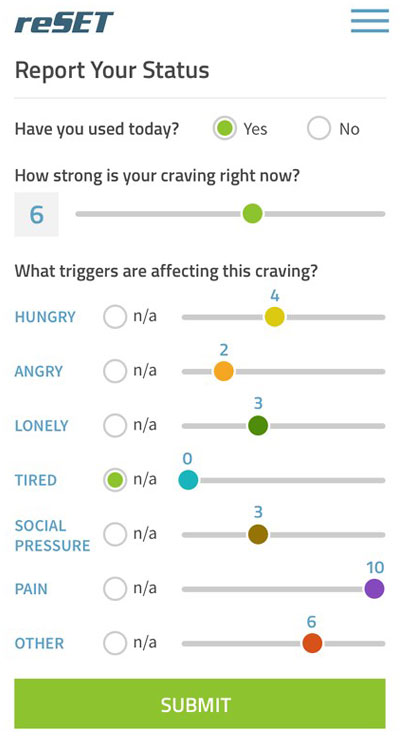In a watershed moment in medicine, the U.S. Food and Drug Administration (FDA) last month
cleared Pear Therapeutics’ digital program known as reSET as a treatment for substance use disorders (SUDs).
“This is the first piece of software cleared by the FDA to treat any disease,” said Corey McCann, M.D., president and CEO of Pear Therapeutics.
reSET is a 12-week digital therapeutic that is meant to be used in conjunction with standard outpatient treatment for alcohol, cocaine, marijuana, and stimulant SUDs to improve treatment retention and enhance abstinence.
This software program combines a mobile app for patients, which includes interactive modules and assessments, with a desktop program for the clinician to view analytics and monitor patient progress. The modules on the patient side provide neurobehavioral support using the Community Reinforcement Approach (CRA) model. CRA is a form of cognitive-behavioral therapy that combines social reinforcement and other incentives to encourage and increase satisfaction with drug-free sources of reward.
The reSET app is only available to patients by prescription. Physicians can prescribe 90-day access to reSET in the form of a code that the patient enters after he or she downloads the app.
The primary support for reSET came from a multisite clinical
study. As described in the June 2014 issue of the
American Journal of Psychiatry, this trial included over 500 adults with an SUD who were participating in an outpatient treatment program. The participants were randomly assigned to receive either 12 weeks of usual care (including both individual and group counseling) or usual care plus reSET, with the digital intervention substituting for two hours of counseling time each week.
At the study’s end, the patients with alcohol, cocaine, marijuana, and/or stimulant disorders who used reSET had a lower dropout rate and were about twice as likely to be abstinent (58.1 percent versus 29.8 percent for usual care). The intervention was especially effective for patients with a poor prognosis (those who had a positive drug screen at the start of the study), as they showed nearly five-fold increased abstinence compared with usual care.
“The pharma world is predicated on high-efficacy claims; their products have to show a definite level of superiority as a treatment,” McCann said. “We cleared this device using that same standard.”
While the AJP study also included people with opiate use disorders (OUD), reSET is not cleared to treat OUD. McCann explained to Psychiatric News that reSET is not intended to be used alongside medications; rather, it is a prescribed adjunct to enhance counseling and behavioral therapies. Treating opioid use disorder is different from treating stimulant, cannabis, and cocaine use disorder, in that medication-assisted treatment with agents like buprenorphine is considered a standard of care.
McCann noted that Pear Therapeutics has developed a modified version of reSET called reSET-O that is specifically designed to be prescribed along with medication to improve treatment of OUD. According to McCann, the company is currently in talks with the FDA about reSET-O. ■

